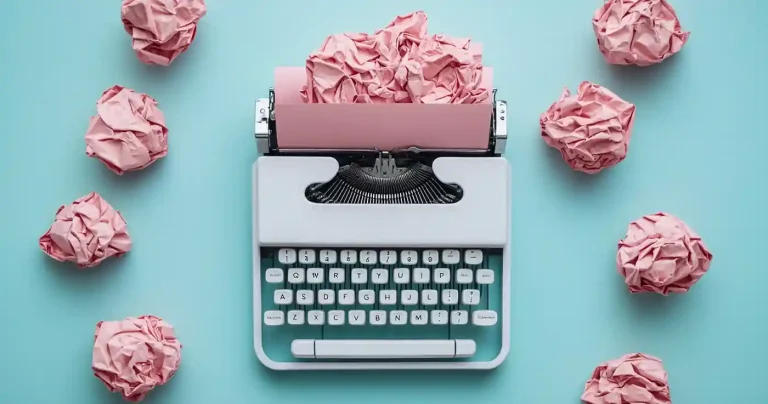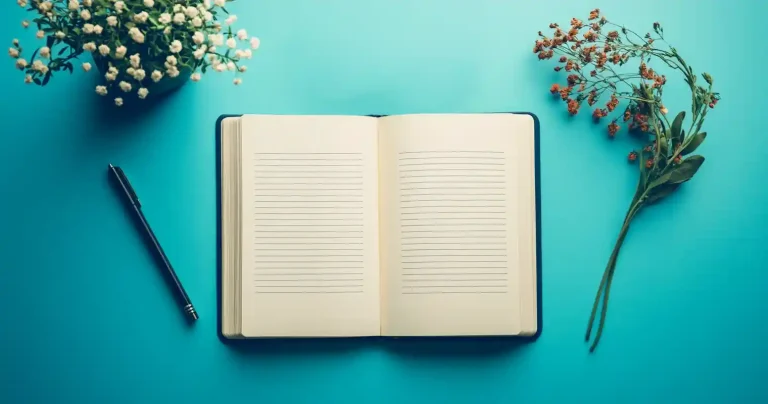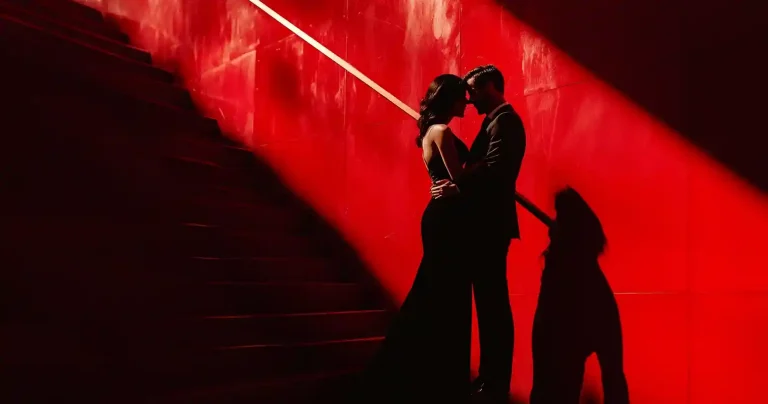Why Writing Prompts are a Writer’s Best Friend
Every writer has faced it: the daunting, blank page staring back at you. It’s equal parts promise and pressure, brimming with potential but offering no hints on where to start. That’s where creative writing prompts come in—a lifeline for creativity and a trusty tool for battling writer’s block. Whether you’re crafting fiction, poetry, or a heartfelt memoir, the right prompt can ignite your imagination and set your words flowing.
In this post, you’ll also find bonus insights from bestselling author Rachel Aaron (creator of 2k to 10k) and real authors who’ve shared their experiences at The WriteTreat. These insider tips go beyond prompts—they show how working writers actually use them to build books that sell.
In this post, we’re diving into a treasure trove of writing prompts designed to spark creativity. From character-building scenarios to evocative story starters, these prompts will help you uncover new ideas, refine your skills, and find inspiration whenever you need it. Ready to transform that blank page into something extraordinary? Let’s dive in!
Fiction Writing Prompts: Ignite Your Imagination
Fiction thrives on “what ifs.” The wild scenarios, intriguing characters, and unexpected twists are what keep readers hooked. Fiction prompts give you the raw material to craft stories that come alive on the page. Try these to kickstart your next tale:
- Your protagonist wakes up in a world where no one remembers them—not even their closest friends.
- A small town experiences an unexpected power outage that lasts exactly 13 hours. When the lights come back on, something is different.
- A mysterious letter appears on your character’s doorstep, inviting them to a reunion for a school they never attended.
These ideas can help you develop characters, shape intriguing plots, or explore entirely new genres. Take a prompt and let your imagination run wild. You might just find the beginnings of your next bestseller.
“A lot of what readers call good plots is actually just good character drama,” Rachel Aaron explained at a WriteTreat session. “Prompts that pull characters into messy, emotional situations—that’s where real story happens.” –Rachel Aaron, The WriteTreat Zoom sessions.
Non-Fiction Writing Prompts: Unearth Your Stories
Non-fiction writing is deeply personal, often grounded in memories, lessons, and reflections. The challenge? Choosing a story to tell. Non-fiction prompts help you explore your experiences in meaningful ways. Here are a few to get you started:
- Write about a time you took a leap of faith. What led up to it, and what did you learn?
- Describe a person who had a significant impact on your life. What made them unforgettable?
- Think about a place that feels like home. How does it shape your identity?
These prompts aren’t just for memoirs—they’re perfect for essays, blog posts, or even speeches. Use them to connect with your audience and share insights they’ll never forget.
Poetry Writing Prompts: Channeling Emotion Through Verse
Poetry is all about distilling emotions into words. Whether you’re a seasoned poet or a curious beginner, these prompts can help you explore new themes and styles:
- Write a poem that captures the first snowfall of the year.
- Explore the concept of time passing through a series of metaphors.
- Describe your happiest memory without naming the people or places involved.
With poetry, there’s no wrong way to interpret a prompt. The goal is to experiment, express, and discover your unique voice.
At WriteTreat, Rachel described poetry and lyrical prose as “the emotional cheat code.” She said, “Sometimes, if you can’t figure out what a character’s feeling, try writing their thoughts as a poem. It bypasses the rational mind and hits the core emotion.” –Rachel Aaron, The WriteTreat Zoom sessions
Dialogue Writing Prompts: Let Your Characters Speak
Sometimes, the best way to develop your characters is to give them a voice. Dialogue prompts can help you create natural, engaging conversations that reveal personalities, deepen relationships, and drive your story forward. Try these to kick things off:
- Character A: “You can’t just walk away like this.”
Character B: “Watch me.” - Character A: “I swear I didn’t touch it.”
Character B: “Then why do you have paint all over your hands?” - Character A: “Do you hear that?”
Character B: “Hear what?”
(Then the sound comes again, louder this time.)
These snippets can inspire everything from tense confrontations to humorous exchanges. Use them as standalone exercises or weave them into your larger narratives.
Rachel Aaron shared this with the WriteTreat group: “Dialogue isn’t just about sounding natural—it’s about subtext, stakes, and letting characters reveal themselves without exposition.” –Rachel Aaron, The WriteTreat Zoom sessions
Story Starter Prompts: Where It All Begins
Every great story starts with an unforgettable opening. These story starter prompts give you a launching pad to build from. Use them to spark your next masterpiece:
- “The rain poured harder as she clutched the envelope, knowing it would change everything.”
- “He’d been warned not to open the door after midnight, but curiosity got the better of him.”
- “She sat in the empty room, the clock ticking down to the moment everything would fall apart.”
A good story starter doesn’t just set the scene—it pulls readers in and leaves them wanting more. Let these prompts do the heavy lifting for you and see where your creativity takes you.
Developing a Writing Routine with Prompts
Creative writing prompts are a great tool, but their magic multiplies when paired with a consistent writing routine. Here’s how to make prompts a regular part of your creative process:
- Set a Daily Goal: Commit to writing for 15 minutes a day using a prompt. Consistency is key to building creativity.
- Mix and Match: Rotate between fiction, non-fiction, and poetry prompts to stretch your creative muscles.
- Freewrite First: Spend 5–10 minutes freewriting on a prompt without worrying about grammar or structure. This opens the floodgates of creativity.
- Reflect and Revise: After completing a piece, spend time refining it. Prompts can lead to polished work if given the attention they deserve.
By incorporating prompts into your routine, you’ll develop a habit of writing that feels both productive and playful.
Bonus Section: Writing Prompt Hacks for Overcoming Writer’s Block
When writer’s block strikes, even the best prompts can feel daunting. Here are some hacks to make prompts work for you in any situation:
- Choose at Random: Flip through a prompt list and pick one without overthinking. Let surprise guide you.
- Combine Prompts: Struggling to connect with a single idea? Pick two prompts and mash them together for unexpected results.
- Change the Medium: If words aren’t flowing, try doodling a scene inspired by the prompt or speaking it aloud to unlock fresh ideas.
- Set a Timer: Give yourself five minutes to write anything—even gibberish—about a prompt. You might uncover a gem buried in the chaos.
Rachel revealed she often uses low-stakes freewriting to unlock stuck scenes: “If a scene feels stiff, I’ll write three random takes on it—even absurd ones. Sometimes the weirdest version reveals the real emotional core.” –Rachel Aaron, The WriteTreat Zoom sessions
These strategies can help you turn even the most stubborn creative block into a breakthrough.
Explore More: Writing Prompts by Genre and Audience
Writing prompts are incredibly versatile, and tailoring them to specific genres or audiences can unlock even more creative possibilities. Here’s how you can take your prompts further:
Writing prompts tailored to specific genres provide writers with focused inspiration. They not only spark ideas but also help sharpen skills in crafting the nuances of a particular style. Here’s an expanded look at how prompts can fuel creativity across various genres, including some underrepresented ones. Plus, we’ll explore how blending genres can lead to truly unique storytelling.
Mystery Writing Prompts: Dive into Intrigue
Mystery is all about suspense, clues, and the thrill of discovery. Use these prompts to build tension and keep your audience guessing:
- A detective wakes up in a crime scene with no memory of how they got there.
- The protagonist receives an anonymous message that reads: “Don’t trust the one who saved you.”
- A decades-old cold case resurfaces when a key piece of evidence is discovered during a home renovation.
Mystery prompts encourage writers to focus on pacing, foreshadowing, and crafting unexpected twists.
Horror Writing Prompts: Embrace the Fear
Horror relies on atmosphere, tension, and the primal fear of the unknown. These prompts will chill both you and your readers:
- A new family moves into an old house, but only the youngest child can hear the whispers at night.
- Every night, your character dreams of a door they’ve never seen before. One day, it appears in their house.
- A small town bans mirrors after a series of mysterious disappearances linked to reflections.
For horror, prompts can help explore psychological depth, supernatural themes, or the grotesque. Experiment with subtle scares and outright terror.
Science Fiction Writing Prompts: Imagine the Future
Science fiction thrives on “what if?” questions, blending speculative technology with human emotion. These prompts can open up worlds of possibility:
- Your character is the last human on a spaceship, but one day, a distress signal from Earth is received.
- A futuristic city enforces a law that erases people’s memories after every decade. One citizen tries to break the cycle.
- Artificial intelligence develops emotions, leading to a rebellion against its creators.
Sci-fi prompts are ideal for exploring technological advances, ethical dilemmas, and the complexities of human innovation.
Fantasy Writing Prompts: Create Otherworldly Wonders
Fantasy is a canvas for rich, immersive worlds. These prompts will inspire magical tales filled with wonder and danger:
- A forbidden spellbook is found, and each spell comes with an unexpected consequence.
- In a land where everyone has a magical gift, one child is born without powers—and becomes the kingdom’s greatest hero.
- A legendary sword is unearthed, but only those with impure intentions can wield it.
With fantasy, focus on world-building, unique magical systems, and moral dilemmas.
Historical Writing Fiction Prompts: Bring the Past to Life
Historical fiction blends real events with fictional elements, creating stories that feel authentic and compelling. Try these prompts:
- A young nurse during World War I discovers a coded letter in the pocket of a soldier’s coat.
- A blacksmith in 18th-century Europe becomes entangled in a rebellion against the monarchy.
- A journalist in the 1920s uncovers a scandal that could change the course of history.
Historical fiction prompts help writers focus on period details, dialogue, and the interplay between fact and fiction.
Romance Writing Prompts: Craft Stories That Stir the Heart
Romance writing thrives on emotion, connection, and the thrill of relationships. Whether your story explores first love, rekindled flames, or unspoken desires, romance prompts can help you create narratives that resonate deeply with readers. Use these ideas to spark the chemistry:
Sweet Romance Writing Prompts: Tender and Heartwarming
- A bookshop owner finds anonymous love notes tucked between the pages of books in their store.
- Two childhood friends reconnect at a wedding, realizing the spark between them never faded.
- Your protagonist receives a bouquet every week from a secret admirer, but one day the sender is revealed unexpectedly.
Sweet romance prompts are perfect for focusing on emotional intimacy and the beauty of quiet, meaningful moments.
Dramatic Romance Writing Prompts: Love with High Stakes
- A journalist covering a high-profile scandal falls for the person they’re investigating.
- Two spies working for opposing organizations must decide between their missions and their love.
- During a long-distance relationship, your character discovers a shocking secret about their partner’s life.
Dramatic prompts challenge writers to explore love under pressure, blending romance with elements of suspense or conflict.
Historical Romance Writing Prompts: Love Through Time
- A suffragette falls in love with the heir to a powerful political dynasty opposed to her cause.
- Two passengers on a 19th-century steamship discover a forbidden connection, risking scandal.
- A skilled painter is hired to create a portrait of a nobleman’s fiancée, only to fall for her instead.
These prompts transport readers to bygone eras, combining historical details with timeless tales of love.
Fantasy Romance Writing Prompts: Magic and Love Collide
- A sorcerer falls in love with the very knight sworn to destroy them.
- In a kingdom where soulmates are bound by glowing marks, your protagonist’s match belongs to the enemy side.
- A love-struck inventor builds a machine to travel between dimensions to reunite with their partner.
Fantasy prompts encourage writers to blend romance with imaginative, magical settings, creating stories that captivate and enchant.
Contemporary Romance Writing Prompts: Love in the Modern World
- Two rivals at a tech startup are forced to collaborate on a major project—and sparks fly.
- After an accidental text message exchange, two strangers find themselves falling for each other.
- A barista and a regular customer bond over a shared love of obscure books.
Modern romance prompts allow for relatable characters, current cultural references, and themes that resonate with today’s readers.
Tips for Writing Romance from Prompts
- Focus on Emotion: Romance thrives on deep emotional connections. Explore how the characters feel in each moment.
- Build Chemistry: Let the tension simmer and grow naturally, whether it’s sweet, fiery, or dramatic.
- Consider Subplots: Romance often blends well with other genres like mystery, fantasy, or drama. Use a secondary storyline to add complexity.
Romance prompts are incredibly versatile, helping you explore love in all its forms. Whether you’re crafting a swoon-worthy tale or a heartrending drama, these ideas will get your creativity flowing!
Blending Genres: Where the Magic Happens
Why settle for just one genre when you can combine them? Genre blending leads to fresh, unexpected stories, allowing writers to innovate while appealing to diverse readers. The next time you’re stuck, try reimagining a prompt by infusing it with elements of another genre. Here are some exciting genre mashups to spark your creativity:
Mystery + Sci-Fi Writing Prompts:
- A detective is hired to investigate a murder on a space station where the victim was digitally cloned.
This blend allows for gripping investigations with futuristic technology, creating a unique twist on the classic whodunit.
Horror + Fantasy Writing Prompts:
- An enchanted forest traps those who enter, feeding on their darkest fears.
Combining horror and fantasy lets you explore magical settings with eerie, unsettling undertones, perfect for atmospheric storytelling.
Historical Fiction + Romance Writing Prompts:
- Two spies on opposite sides of the Cold War fall in love, risking everything for secret rendezvous.
Mixing history and romance lets you dive into rich, real-world settings while exploring forbidden or high-stakes love.
Science Fiction + Horror Writing Prompts:
- A research lab on a distant planet accidentally releases a virus that reanimates the dead.
This mashup blends technological innovation with spine-chilling terror, ideal for exploring themes of humanity and survival.
Romance + Comedy Writing Prompts:
- Two chefs with a long-standing rivalry are forced to co-host a cooking show and discover they have more in common than they thought.
Romantic comedy combines heartfelt moments with humor, providing lighthearted and relatable entertainment.
Fantasy + Historical Fiction Writing Prompts:
- A knight from medieval England is transported to a magical realm where they must adapt to a world of wizards and mythical creatures.
Blending history with fantasy allows you to play with time periods and magical elements, creating worlds that feel both familiar and otherworldly.
Thriller + Romance Writing Prompts:
- A journalist falls in love with the very person they’re investigating, putting their career—and life—in jeopardy.
Thriller-romance hybrids bring adrenaline-fueled action to love stories, combining emotional intensity with edge-of-your-seat suspense.
Horror + Romance Writing Prompts:
- A ghost haunting an old mansion falls in love with the new owner, who must uncover the mystery of their death to set them free.
Blending horror with romance lets you balance chills and tenderness, creating stories that are both haunting and heartwarming.
Young Adult + Fantasy Writing Prompts:
- A teenager discovers they are the last descendant of a magical bloodline and must master their powers before an ancient evil rises again.
YA and fantasy blend seamlessly, focusing on coming-of-age themes with epic, magical journeys.
Comedy + Mystery Writing Prompts:
- A quirky group of friends accidentally uncovers a treasure map during a game night, leading to hilariously chaotic misadventures.
This blend lightens the tone of traditional mysteries, focusing on humor and camaraderie alongside the intrigue.
Genre blending opens up endless creative possibilities. Whether you’re experimenting with sci-fi thrills, romantic tension, or fantastical worlds, combining genres challenges you to think outside the box—and keeps your readers hooked. The results might surprise you—and your audience!
Rachel encourages writers to lean into genre collisions: “The weird combos are what make your story unforgettable. A ghost falling in love with a barista? That’s what readers remember. Not another chosen one with a prophecy.” –Rachel Aaron, The WriteTreat Zoom sessions
Writing Prompts for Different Audiences
Writing Prompts for Adults:
- Write about a dream you had as a child that still lingers in your mind.
- Imagine a conversation between your present self and your teenage self.
- Describe the first time you felt truly independent.
These prompts encourage reflection and tap into adult readers’ complex emotions and experiences.
Writing Prompts for Teens:
- Your best friend starts acting strangely after finding a strange object in the woods.
- Write about a day where your favorite book character suddenly becomes real.
- You discover your school has a hidden underground tunnel. Where does it lead?
Teen prompts lean into adventure, discovery, and the high stakes of young life.
Writing Prompts for Kids:
- A talking animal appears in your backyard and asks for your help.
- You build a time machine out of cardboard, and it actually works.
- Your teacher turns into a superhero during class. What happens next?
Kids’ prompts are all about playfulness and imagination, making writing a joyful activity.
Conclusion: The Power of Writing Prompts
Writing prompts aren’t just for overcoming creative hurdles—they’re a doorway to discovering new ideas, honing your craft, and building confidence as a writer. With the right prompts, you can step into any genre, write for any audience, and explore creative depths you didn’t know you had.
So, why wait? Pick a prompt from this list, set a timer, and let your creativity take flight. Who knows? Your next masterpiece might just be a writing prompt away.








